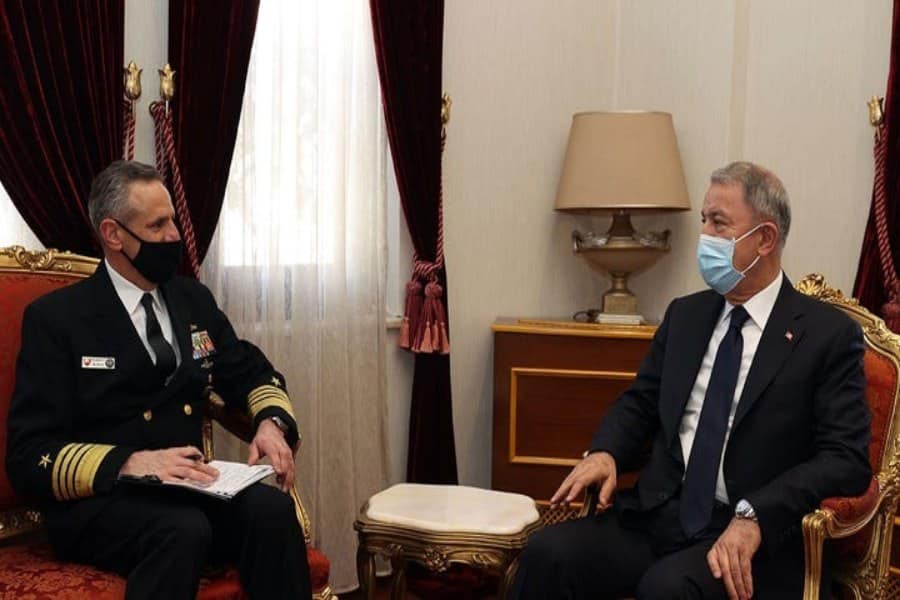
The arrest of retired four-star Admiral Robert Burke on bribery charges has sent shockwaves through the military and defense sectors. It highlights potential systemic vulnerabilities within the U.S. Navy’s contracting processes and raises serious questions about the integrity and oversight of military procurement and the conduct of its highest-ranking officials.
Burke, who commanded extensive naval operations across Europe, Russia, and Africa, was arrested for allegedly involving a bribery scheme with Yongchul “Charlie” Kim and Meghan Messenger, executives at the New York-based firm NextJump. The Justice Department accuses them of formulating a plan where Burke would facilitate a government contract for NextJump in exchange for lucrative employment upon retirement.
The connection between Burke and NextJump dates back to 2018 when the Navy initially contracted the company for a training pilot program. This relationship was meant to be severed in 2019 after the contract’s termination, with explicit orders that NextJump refrain from contacting Burke. Contrary to these directives, federal officials claim that Burke met with Kim and Messenger in Washington, D.C. in July 2021. During this meeting, Burke allegedly agreed to advocate for a sole-source contract that would significantly benefit NextJump.
According to the indictment, Burke’s promise materialized into action five months after the Washington meeting. He allegedly instructed his staff to award a $355,000 contract to NextJump for training Navy personnel stationed in Italy and Spain. This training session took place in January 2022 and is at the heart of the bribery allegations.
In a move that federal investigators point to as evidence of the quid pro quo arrangement, Burke joined NextJump in October 2022 with a starting salary of $500,000. Closely following his retirement, prosecutors present this appointment as a payoff for his alleged earlier actions favoring the company.
The charges against Burke are severe. They include bribery, conspiracy to commit bribery, actions affecting a personal financial interest, and concealing material facts from the U.S. government. Burke could face up to 30 years in prison. Kim and Messenger, complicit in the bribery and conspiracy, could each face up to 20 years if convicted.
Burke’s attorney has publicly refuted the allegations, indicating a robust defense strategy that will challenge the prosecution’s narrative. The defense argues that there was no correlation between Burke’s actions and his subsequent employment at NextJump, suggesting that the employment discussions were independent of the contract award.
This case underscores the critical need for stringent ethical guidelines and robust monitoring within military procurement to prevent corruption. If proven true, the alleged actions of a high-ranking officer like Burke could lead to a reevaluation of oversight mechanisms within the Navy and potentially across other branches of the military.
The implications of this scandal are profound, not only for the individuals involved but for the entire military establishment. It challenges the trust placed in those with considerable power and responsibility and underscores the ongoing battle against corruption within government agencies.
The military community and the general public have reacted with dismay and concern to the allegations. There is a strong call for accountability and for measures that ensure such breaches of trust are not repeated. The Navy has committed to full cooperation with the investigative authorities and upholding ethical standards.
As this case progresses, it will undoubtedly serve as a litmus test for the integrity of military contracting and the accountability of high-ranking military officers. The outcomes will likely influence future policies and procedures governing military engagements with private sector entities and might instigate broader reforms in military governance.
Admiral Burke’s case concerns the legality of certain actions and also reveals a narrative about ethical leadership and the responsibilities of those in power. The unfolding legal proceedings will provide a clearer picture of the extent of the alleged corruption and likely have lasting implications for how high-ranking officials interact with the private sector and manage conflicts of interest.
This scandal, enveloping a respected admiral and prominent corporate executives, paints a troubling picture of the interplay between power and corruption. As the trial approaches, all eyes will be on the courtroom, where the veracity of the allegations will be thoroughly examined, and the principles of justice and integrity will be tested.








